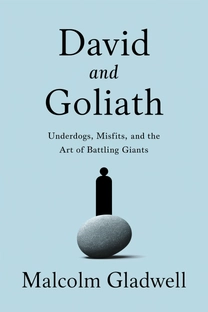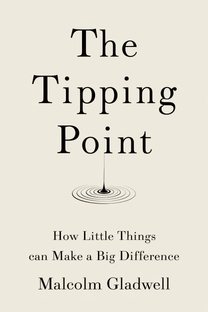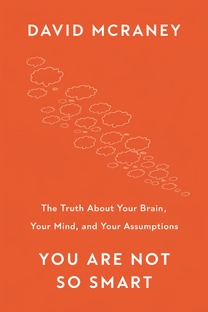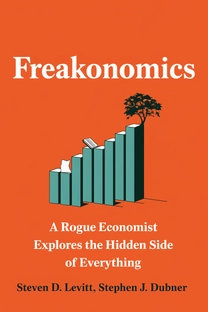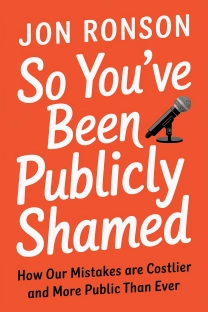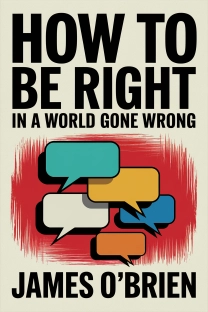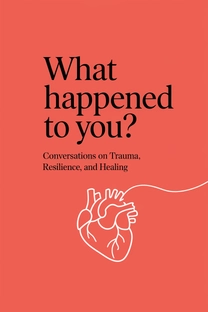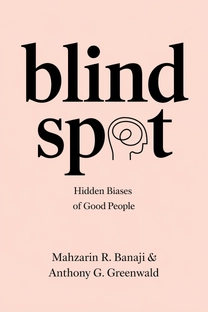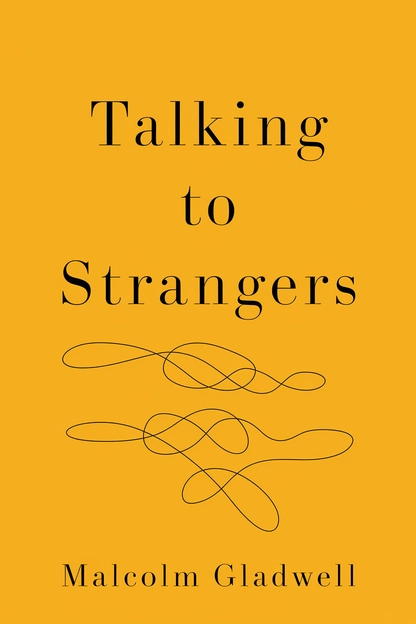
Talking to Strangers
What We Should Know About The People We Don’t Know
by Malcolm Gladwell
Brief overview
This book explores why misunderstandings with strangers often happen, revealing how our assumptions can profoundly mislead us. It unpacks real-life cases, showing how factors like cultural context, hidden biases, and our very human tendency to trust shape our interactions. By reading it, you will gain insights into the pitfalls of quick judgments and discover ways to handle unfamiliar people and circumstances with more clarity.
Introduction
We often assume that people’s actions and words reveal exactly who they are. Yet this assumption can fail us, especially when we approach those we do not know well. This opening section poses a big question: If we struggle to understand strangers, how do we keep society running without constant error?
The book begins by exploring how simple encounters can spiral out of control when we rely on snap judgments. Whether it is a bureaucrat missing a massive fraud or a highway patrol officer overreacting, the same pattern emerges: we think we can read someone’s intentions, but frequently, we are mistaken.
This mismatch between how we think strangers should behave and how they actually behave lies at the heart of countless misunderstandings. Over the chapters, you will see stories of finance scandals, espionage, sexual assault cases, and everyday traffic stops—all turned tragic by the same errors.
Why We Struggle to Understand Strangers
We might feel confident in judging a stranger’s credibility by simply observing them. Yet research shows we do not detect lies well, and false impressions are surprisingly easy to form. We frequently believe we can index a person’s honesty through eye contact or their tone, but this is often unreliable.
An example is how governments or institutions placed trust in seemingly ordinary individuals whose misbehavior was blatant in hindsight. This highlights a recurring theme: we judge people based on a ‘default to truth,’ which makes us accept what they say unless the doubts become impossible to ignore.
Some critics push back, arguing we should be more cynical. But the book suggests that extreme distrust is equally paralyzing. Society functions only because we usually give others the benefit of the doubt. The real challenge is recognizing the cost we pay when that assumption fails.
What is Talking to Strangers about?
“Talking to Strangers” by Malcolm Gladwell examines the subtle forces that shape our interactions with unfamiliar people. It shows how cultural context, hidden biases, and our natural tendency to trust can mislead us in profound ways. Through vivid examples—ranging from espionage scandals to political missteps—the book reveals why our attempts to size up strangers can fail, sometimes with tragic outcomes.
Gladwell argues that our common tools for reading body language or tone are less reliable than we think. Instead, we need a deeper understanding of the social and psychological factors at play. By spotlighting wrongful arrests, misguided negotiations, and overlooked red flags in high-profile cases, the book offers practical ways to become more mindful when assessing others. Readers walk away with a sharpened perspective on human judgment and the perils of quick conclusions.
Review of Talking to Strangers
This book’s strength lies in its gripping storytelling blended with academic insights. Gladwell connects real-world incidents with research on trust, deception, and the mismatch between how we expect people to act and how they actually behave. Practical lessons emerge on how to be more cautious when interpreting another person’s words or demeanor.
The writing style is direct yet accessible, making it easier to grasp complex psychological ideas. Gladwell emphasizes the role of context, and this sets the book apart from simpler takes on reading strangers. Readers interested in sociology, psychology, or everyday communication will find its points relevant. In the end, I recommend this book to anyone who wants to refine their approach to first impressions and limit costly misunderstandings.
Who should read Talking to Strangers?
- Managers or leaders seeking clearer communication with new clients or teams
- Law enforcement and legal professionals wanting to reduce bias in their assessments
- Educators and counselors guiding people through social dynamics and trust building
- Readers with an interest in psychology and how biases shape everyday judgment
- Professionals in multicultural settings who need a better grasp of social cues
About the author
Book summaries like Talking to Strangers
Why readers love Mindleap
10-Minute Book Insights
Get the core ideas from the world's best books in just 10 minutes of reading or listening.
Curated For You
Discover your next favorite book with personalized recommendations based on your interests.
AI Book ExpertNew
Chat with our AI to help find the best book for you and your goals.
Reviews of MindLeap
Love how I can get the key ideas from books in just 15 minutes! Perfect for my busy schedule and helps me decide which books to read in full.
Alex R.
The summaries are incredibly well-written and the audio feature is perfect for my commute. Such a time-saver!
Jessica M.
Great app for personal growth. The insights are clear and actionable, and I love how they capture the essence of each book.
Chris P.
The app is beautifully designed and the summaries are top-notch. Definitely worth every penny!
Sarah K.


